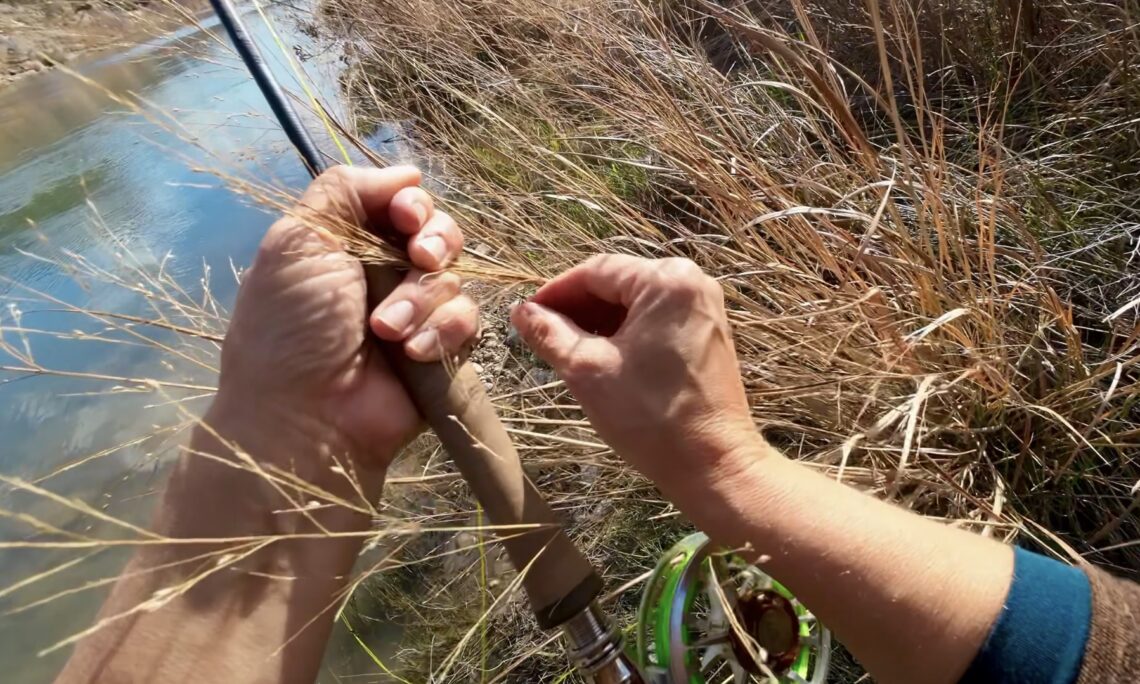©2022 Cari Ray, Fisher of Zen
I firmly believe that fly fishing within a context of mindfulness practice is immeasurably beneficial for mind, body, & spirit. Sometimes by offering low-hanging fruit like fly casting and being in nature. Sometimes by offering situations that border on tedious or frustrating, presenting us with the choice to get bogged down or to rise above. Like most healthy choices, it gets easier with practice. In the “Why Fish for Zen?” series, I’ll highlight just a few of the opportunities offered by the pursuit of fly fishing that give you a chance at that sort of mindfulness “practice” and help you become more balanced and centered in your daily life. Mastery is never about your relationship to anyone or anything else, it’s always between you and you.
We’ve all been there. Maybe it’s a windy day. Maybe there’s a high bank, or a tree, or brush, or sometimes it’s a single blade of grass. And it seemingly snatches your backcast out of mid air. You look back, and not only are you snagged, your tippet has wrapped and tied itself around that snag no fewer than 800 times. For folks who live in places where the vegetation is “tender,” perhaps a little twitch or tug will free you up. But I don’t live in one of those places, I live in Texas. Things that grow here are tough. A necessary quality if they are to thrive, or at least survive, in the often harsh environment. Which is another metaphor worth pondering…another time.
So you’re quite convincingly tangled. Maybe for the umpteenth time that day. If you want to save your flies and not risk snapping your rod tip, you have no choice but to wade back and/or climb over to the tree-bush-thistle-grass (or, if it’s the Llano, maybe the granite) to take care of business. Once you get there, you have a couple of choices. Option A, you can cut the tippet, pull out the flies, and re-rig. Or, option B, you can attempt to untangle the nest of tippet until you either succeed or resign yourself to the fact that it is beyond saving and circle back to option A. But it’s not really those external choices that hold the most valuable opportunity.
If you’re anything like me, by this point, your temperature (literally and figuratively) is starting to go up along with your level of frustration. If you raise your awareness, you can notice it, feel it. And in that moment you are given the opportunity to make a truly valuable choice. Behind door number one, let it overtake you, and maybe build to ruin your entire outing. Behind door number two, a slightly less damaging choice, to do what needs doing, get over it, and get back to fishing. But lingering behind door number three is the kind of choice that, made frequently enough, can start to rewire the way you go about your entire life.
That choice it to turn the entire experience on its head. It’s to decide that this happening is not an interruption of your relaxation, your zen. It’s part of it. The mindless, and meditative, if you’ll let it be, activity of twisting and threading, of weaving in and around until you have freed your flies can do the same for you. To put it a little more succinctly (not my strong suit), it’s a “so what, now what?” mentality.
To listen to the whole series, check out our podcast:
“A MOVING MEDITATION: Fly Fishing & Mental Health”

